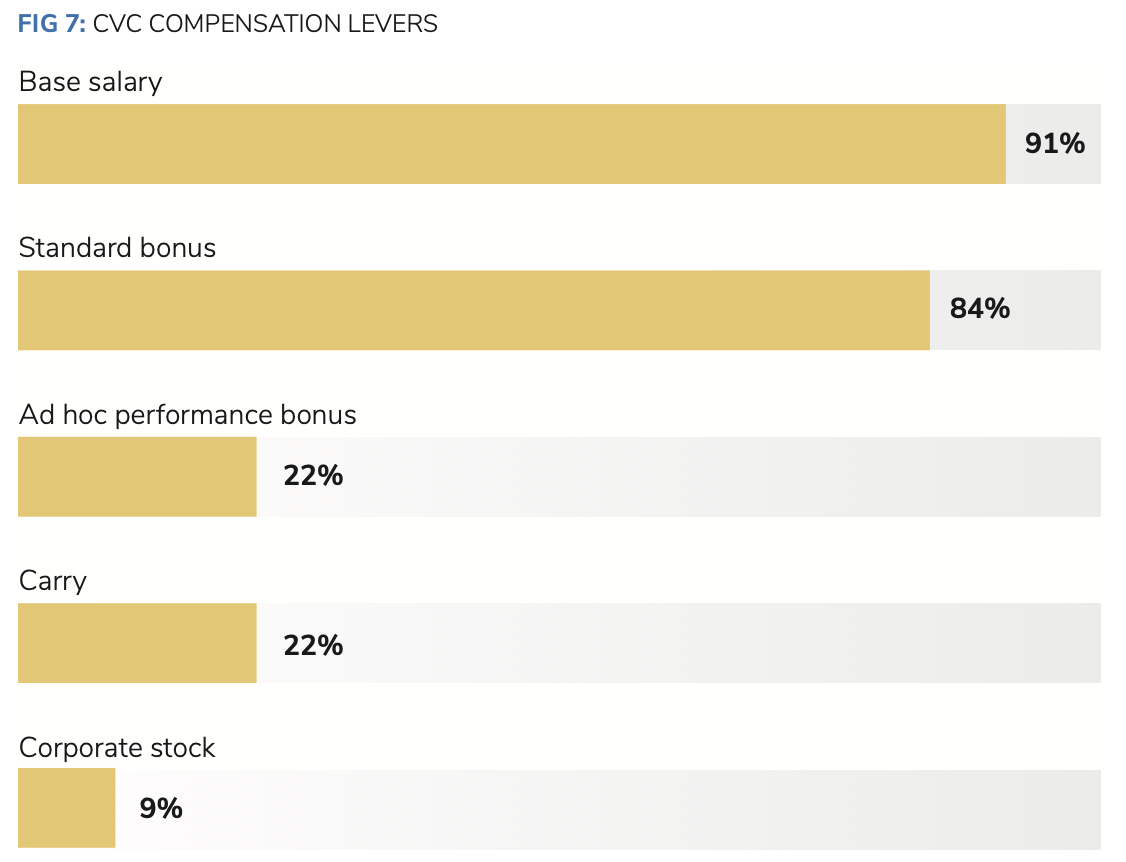- In 2022, GCV supported a survey of Brazil’s corporate venture community by the Brazilian Association of Private Equity and Venture Capital (Associação Brasileira de Private Equity e Venture Capital – ABVCAP).
- The sample size of 41 responses is big enough to be statistically significant for a budding corporate venture ecosystem such as Brazil’s and the findings give a good indication of the emerging venturing scene.
- The following charts, provided by ABVCAP, show the highlights:
Brazil’s corporate venture ecosystem is still relatively young compared with the rest of the world. The majority of the surveyed corporate venture programmes (72%) were set up over the past three years and only 12% pre-date 2018. In our global survey, only 36% of units were set up after 2018.
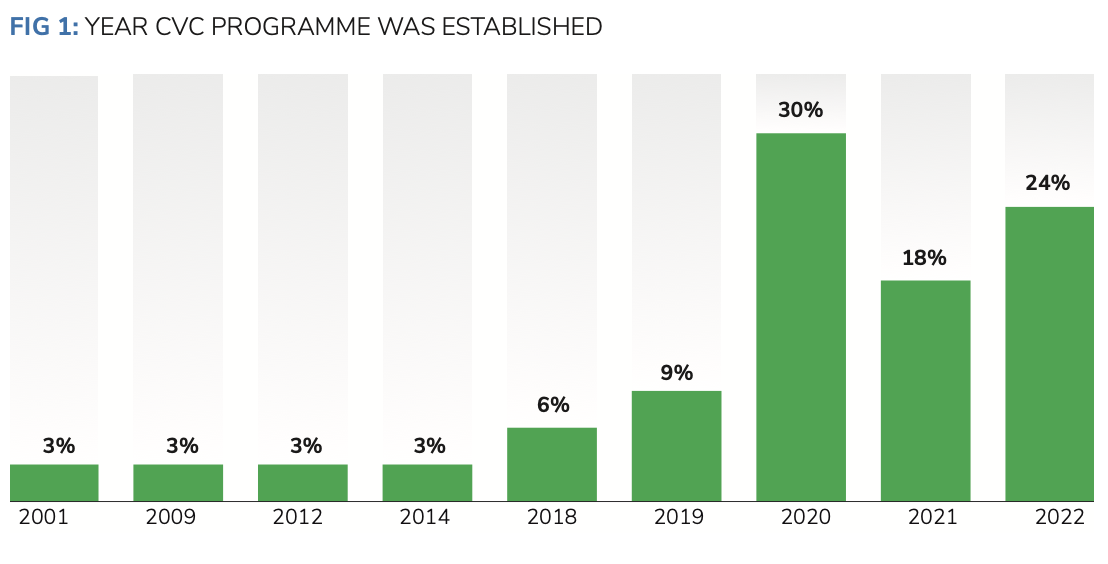
Nearly six out of every 10 (59%) of surveyed corporate venturers said their company had a formal CVC unit – a sign that corporate investing is becoming increasingly professionalised and woven into the corporate structure.

Brazil’s relatively young corporate venture units have not yet built up a large tally of investments. Some 57% of CVC programmes have made fewer than eight investments since inception and 9% have yet to make their first deal. Around 18% of respondents, however, say they have more than 15 under their belt. Among global corporate investors, the majority (60%) intend to make more than four new investments annually.
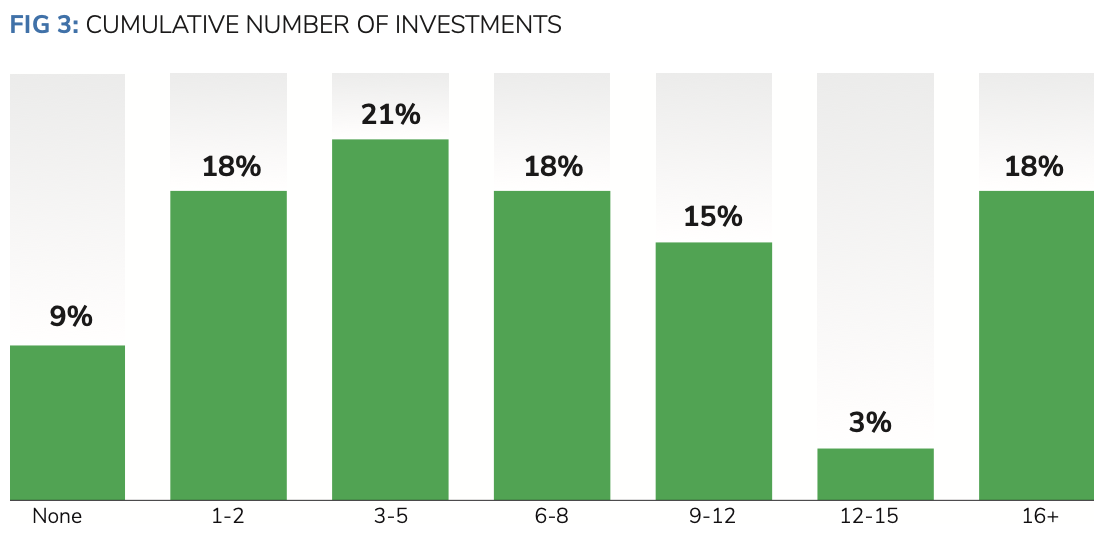
There is also a small variation in the pace of investment. Some 79% of Brazilian CVCs say they plan to make up to six investments a year. Among global corporate investors, the majority (60%) intend to make more than four new investments annually.
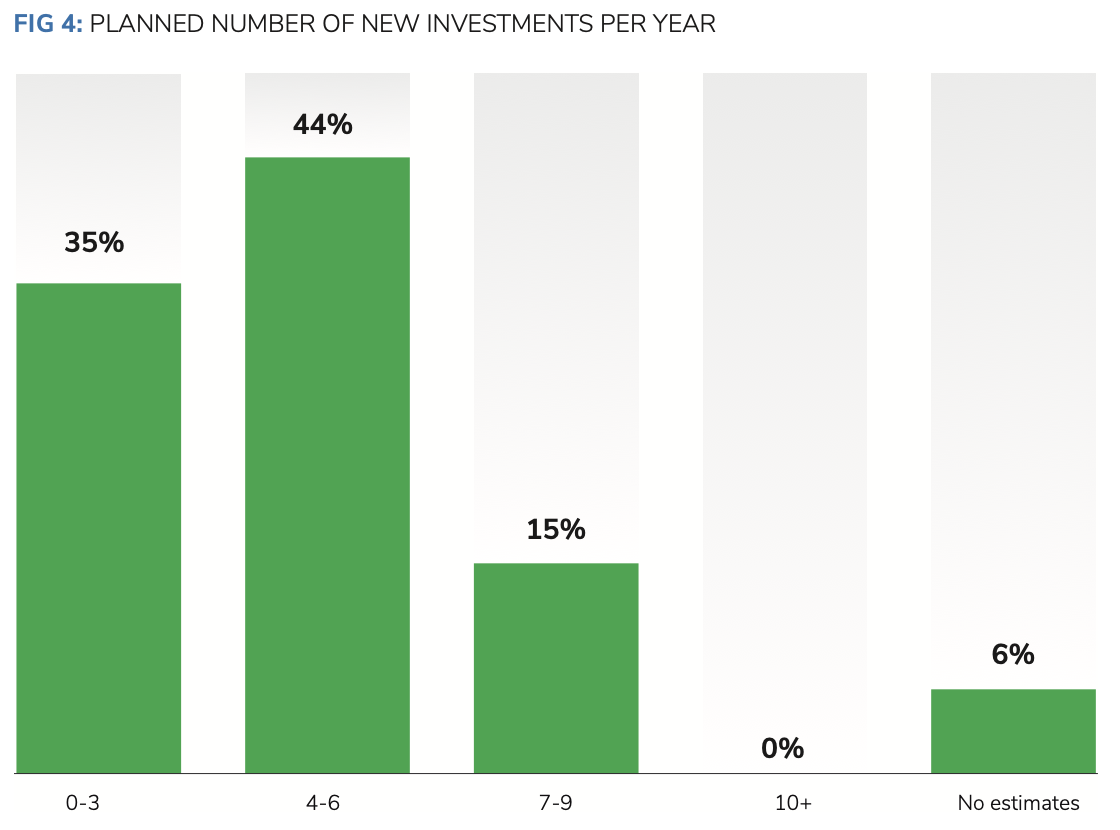
Brazilian corporates focus on broadly the same stages of investment, preferring series A and B. Financial performance targets at Brazilian CVCs follow global norms. Nearly half of those surveyed (48%), both in Brazil and globally, aim for financial returns of 1.6x to 2.5x (with an implied internal rate of return of 16% to 24%). Globally, 17% are aiming to reach the top quartile, with returns of more than 2.5x the capital invested. A more modest 12% of CVC teams in Brazil aim for this.
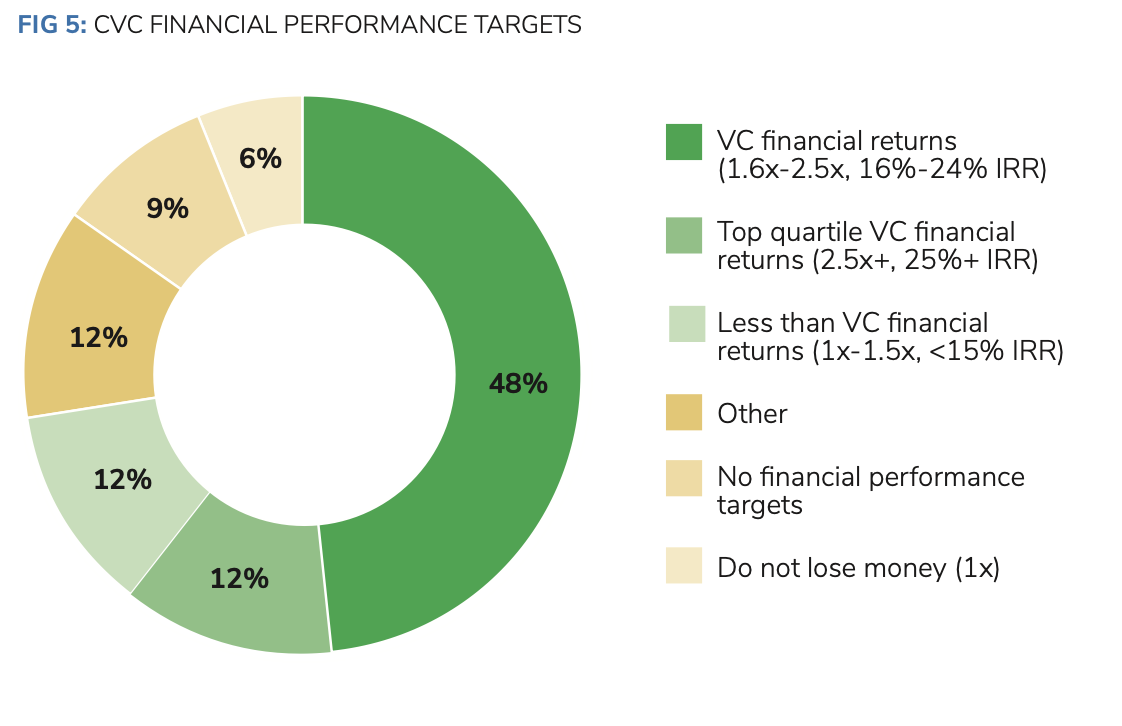
Failure rates are similar. In Brazil, nearly eight (79%) of every 10 corporates say they have never had to write-off on an investment. This is roughly consistent with the high number of their global peers (86%) claiming to have had only 30% or less of their portfolios failing to return the capital invested.
CVC initiatives in Brazil most commonly report directly to the company’s CEO (39.4%) or to the head of innovation (18.2%), while 40% of global peers also report to the CEO, 29% report to CFOs or chief strategy officers and only 14% to innovation.
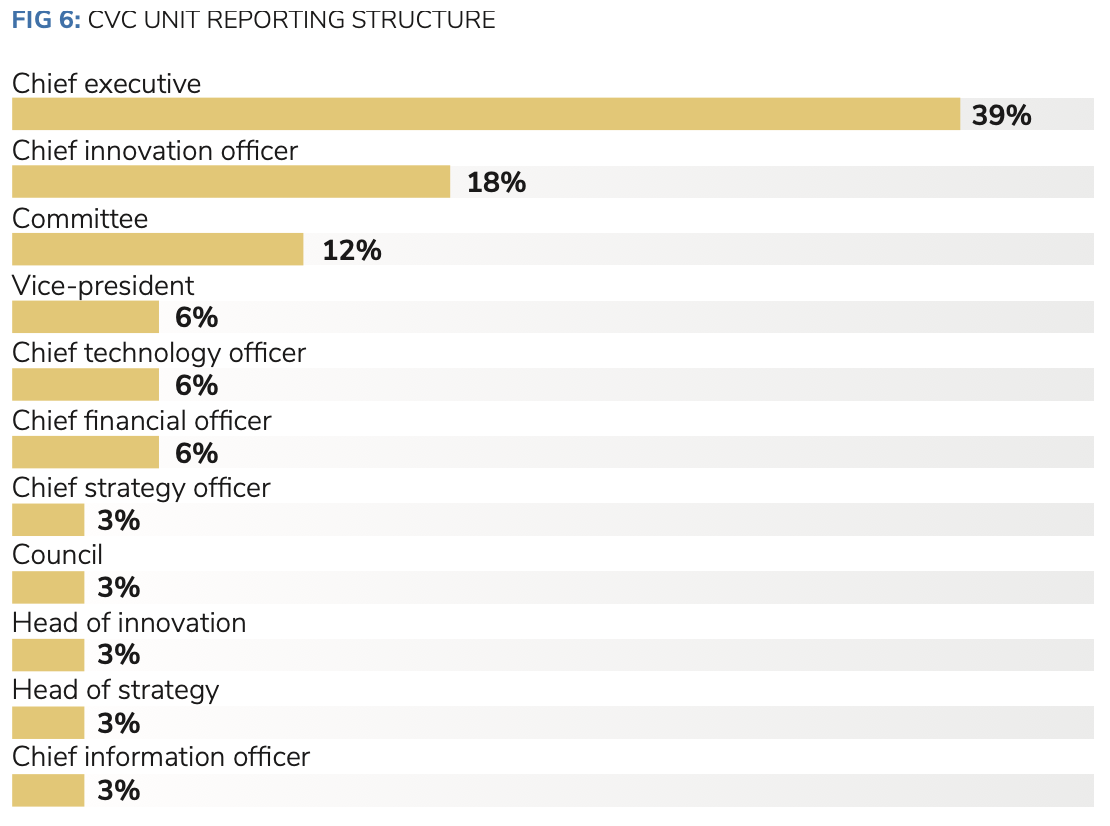
Corporate venture teams in Brazil tend to be a little smaller than their global peers. The majority of CVC responding to the survey had a team of three to five people (61%) compared with 37% operating at that size globally. In this young ecosystem, there are no 20+ person teams yet.
In one metric, Brazil outshines global peers – the presence of female professionals. Only 27% of Brazilian corporate had investor teams where more than 75% of the teams were male. Globally, just under half (47%) of CVC units have majority male or all-male teams.
According to the ABVCAP survey, 84% of Brazil ́s venturing units have a standard bonus as part of their compensation package. Only 22% have an ad hoc performance bonus or carried interest (22%) as part of pay. Carried interest is much more common globally, where 35% of CVC units use this as part of the pay package. As the Brazil ecosystem matures and corporate units start facing the problem of talent retention, carry may become more of a feature.
Corporate stock is rarely used in Brazil, with only 9% having this in their compensation package, compared with 39% of companies that use this globally.
